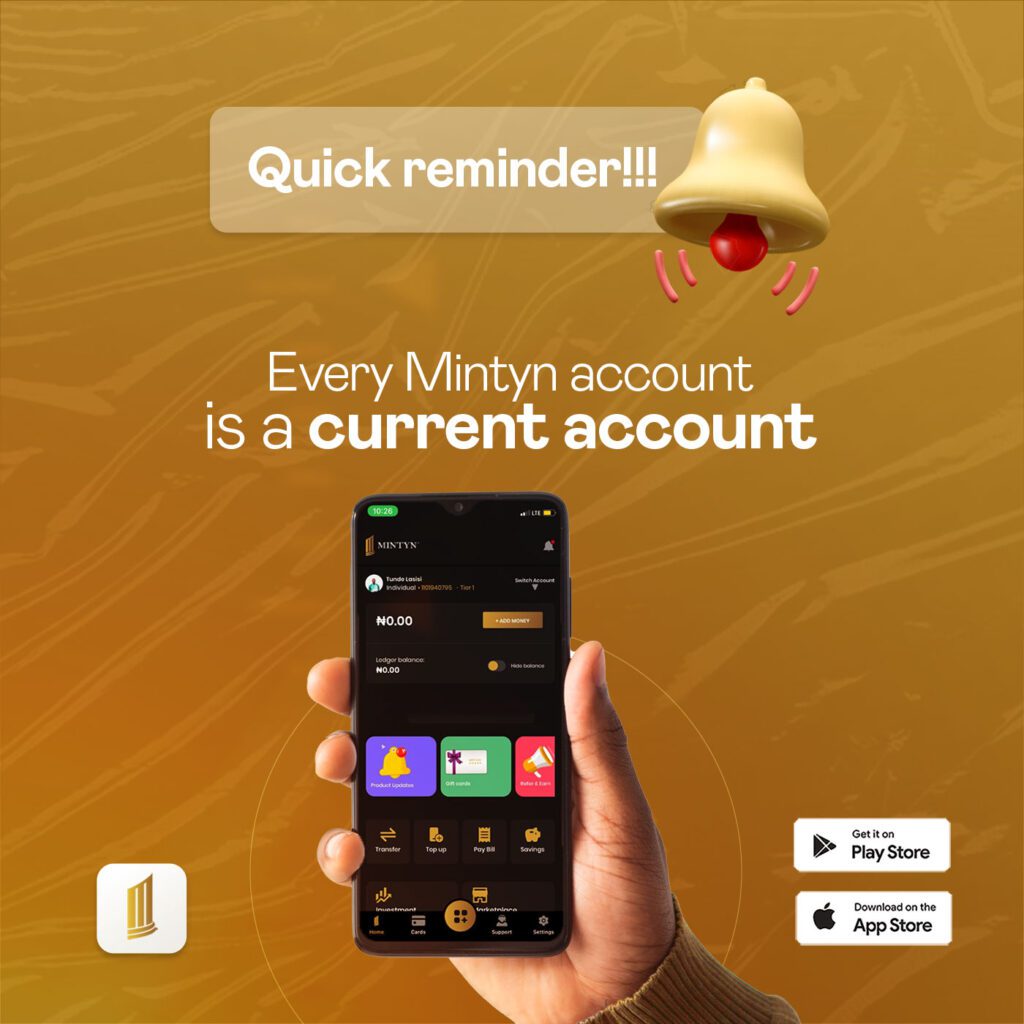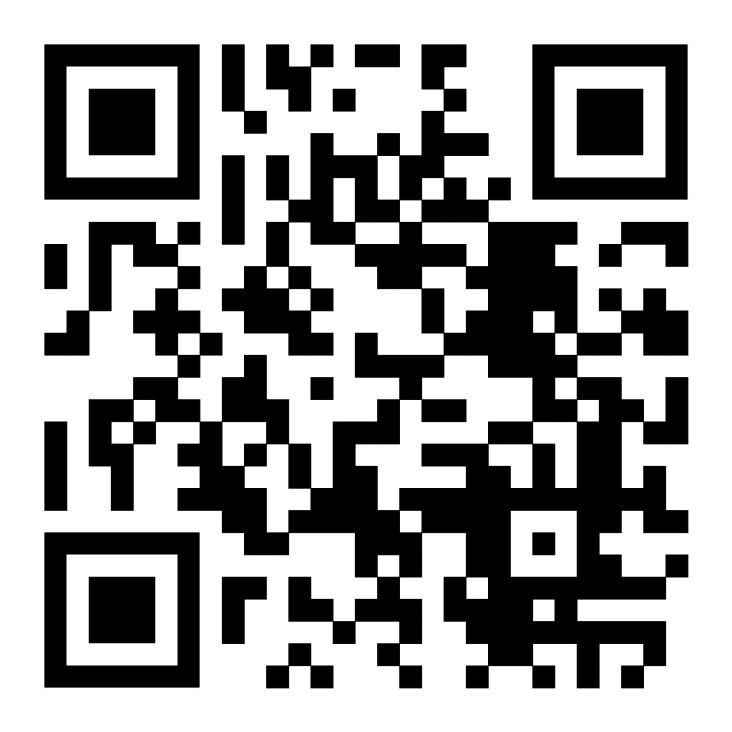A current account is a sort of bank account that safeguards your funds and facilitates effective money management. Personal current accounts make it easier for people, corporations, and organisations to pay you (through direct debits and standing orders). Even though you may use other financial instruments, your current account connects the gaps and makes it possible for everything to function correctly.
Often, a current account is tailored to enable entrepreneurs to achieve their business goals. This is a business account from which a customer can withdraw funds as many times as necessary to run their firm daily. You will never be considered seriously as a businessperson in Nigeria if you do not have a current account. A current or active current or business account is a solid sign that you are ready to do business. Almost no company or individual in Nigeria does not have a current or business account.
It would be beneficial to have a current account to demonstrate creditworthiness. This is because having a current account makes company transactions more seamless overall. If you don’t have an existing business account, your creditors won’t frequently take you seriously. Having a current account makes it easier to conduct financial transactions and eliminates any odd or existing hurdles that might exist between clients using savings accounts. However, this corroborates the rate of bank account holders in Nigeria, as there were 134 million active accounts in 2021 with over 122 million active bank customers. Customers can operate current accounts at Nigeria’s traditional banks, including a few online institutions.
Business owners are not the only ones who use current accounts. Anyone can open a current account or a business account, including individuals, partnerships, companies, organisations, and societies. Opening an existing account follows the same steps as opening a savings account. Don’t forget that current arrangements are trickier than savings accounts.
Some banks that provide current accounts in Nigeria include Mintyn Digital Bank, Zenith Bank, Guaranty Trust Bank, Access Bank, Ecobank, First Bank of Nigeria, United Bank of Africa, etc.
Why Should I Open a Current Account?
Living without a current account can be very challenging because they provide the infrastructure required for making and receiving payments. Existing accounts are ingrained in our way of life.
While you might think that opening a bank account entails scheduling a visit to your neighbourhood bank location, technological advances have made this procedure considerably more straightforward and faster for you. You might be able to open an account from the comfort of your home without ever having to enter a physical branch, depending on who you are working with.
1. Pay In Cash
There’s a good possibility that if you have a job, your employer won’t provide you with cash payments. Your pay is most likely transferred electronically into your current account. Because banks have all agreed upon standard methods of transferring money between accounts (often instant payments), as well as a standardised sort code and account number scheme, employers (or, rather, your employer’s bank) can do this. Without a current account, your company would have no other method to quickly pay you and their employees, which may prevent you from getting a job.
They can also use the exact account details to send you money if your friends and relatives need to. The same information is used if you ever pay with checks or cash at an ATM or in your paying-in book.
2. Spending Cash
We can use the funds we’ve placed in various practical ways thanks to the characteristics of current accounts.
3. Debit Cards
You can use debit cards to make purchases everywhere you see the payment processor’s logo on your card (which, in Nigeria, is always Verve, Visa, or Mastercard). Debit card purchases are usually removed from your account balance right away if you have money in your account, unlike credit card purchases, which typically result in a credit. Your connected debit card will automatically reject the transaction if there are insufficient funds in your current account to cover it.
4. Overdraft
One of the most practical advantages of a current account is overdraft protection. Still, since they are a type of credit, they are always based on your financial situation and credit history.
Overdrafts, assuming you qualify, can be a reliable source of short-term credit. However, like other types of credit, they should only be utilised after careful deliberation because they can be quite expensive if you don’t pay off your debt immediately. Your overdraft fees and how they are assessed will determine how expensive they are. The APR (Annual Percentage Rate), the percentage of the principal debt you would be charged if you held the debt for a year, is the usual way they are expressed.
In any other case, daily fees are incurred. According to your level of overdraft and the bank you use, prices vary. Customary charges may be more accessible for clients to comprehend in some ways. Although they are sometimes far more expensive than overdrafts charged on an APR basis, their simplicity comes at a cost.
What Are The Features of a Current Account?
1. There are no restrictions on the number of deposits or withdrawals a consumer may make daily when using a current account.
2. A person or business can distinguish between personal and commercial finances with current accounts. You can better manage your money if you have current or business accounts.
3. You may use an overdraft at any time if you have a current account.
4. Current accounts do not earn interest. How much money you have in your account is irrelevant.
5. A current account holder can manage frequent, large-volume payments and receipts using an existing account.
Advantages Of Having A Current Account
1. You can create a standing order to pay bills.
2. You are entitled to an overdraft as a current account holder.
3. There is no limit to the amount you can deposit into your current account.
4. A current account lets you know how to file taxes appropriately.
5. There is no withdrawal limit to the amount you want to withdraw on the counter or at cash points.
6. You can pay your different bills with a debit card.
7. You can check your account balance on your mobile device using internet banking.
What Are The Challenges Of Having A Current Account In Nigeria?
It is one thing to have a current account and another to maintain performance adequately because keeping an existing account can be labour-intensive. It is crucial to highlight that while it is typical for businesses, firms, cooperative organisations, etc., to operate current or business accounts almost everywhere, individuals can take advantage of opportunities by maintaining a current account. These people have better financial planning and management skills.
In contrast to other bank accounts, current accounts give their owners financial flexibility. Owning an existing account is tempting because of bank overdrafts, pay orders, checks, and free deposits and withdrawals, but every current or business version needs upkeep.
You must virtually always make sure that your monthly checks are balanced. Customers are required to take care of their current accounts, even if current accounts look after their needs. A good deed merits another.
Types Of Current Account In Nigeria
1. Standard current account: this is a regular existing deposit account with no interest.
2. Packaged current account: this is the type of existing account that comes with products like accident insurance, travel insurance, etc.
3. Foreign current accounts enable businesses to perform transactions in foreign currencies.
4. Single-column cash book: this current account enables you to do small-scale businesses with little or no features.
How To Open A Current Account In Nigeria
Any interested customer who satisfies the requirements outlined by the Central Bank of Nigeria (CBN) is permitted to open a current account with any Nigerian bank. You can open regular current accounts by performing the following:
Requirements To Open A Current Account For An individual
1. Choose your preferred bank.
2. Compile all the required documents to open a current account.
3. Fill in an account opening form at any bank’s branches or via its online portal.
4. Provide a valid means of identification. This could be an international passport, driver’s license, or voter’s card.
5. Two passport photographs.
6. Recent utility bills of not more than three months.
7. Two references.
Introducing Mintyn\’s Current Account
A Mintyn current account is a tool for managing your daily transactions with ease. This flexible account offers unmatched convenience, letting you access, transfer, and monitor your funds whenever it suits you.
With a Mintyn Current account, there is no need for physical branches; it’s all online and at your fingertips.
A digital current account lets you enjoy the flexibility to set up automatic payments, receive alerts, and tailor your banking experience to your lifestyle.
Maximum Deposit In Current Account In Nigeria
The maximum single deposit and total sum allowed in this account are unlimited. The daily limit is nonetheless NGN 1,000,000. The maximum transaction limit is NGN 100,000. No money is also needed to start this account, but the usual customer information is necessary. Banks are also expected to gather, verify, and keep copies of all the paperwork needed to open this account.
This account can be both a savings and a current account, and level three mobile banking products are supported.
What Is The Difference Between A Current Account And Savings Account?
Although you may pay for products easily with current account, they typically don’t pay any interest, and it can be challenging to accumulate savings when money is so readily available.
Getting a savings account and committing to consistently depositing funds is a terrific method to start amassing savings that might be used as a down payment on a home or as an emergency fund.
If you’re concerned about managing several accounts, think about opening a current account and a savings account with the same bank. Both versions will typically be linked through the bank’s mobile banking app, making it very simple to transfer money between them.
Conclusion
There is a proliferation of banks in Nigeria which, in their capacity, provides products hinging on the current account. As such, it is essential to know that your financial goals might not come to fruition with every bank. Therefore, it is advisable to assess the bank whose current account would aid your financial goals.








